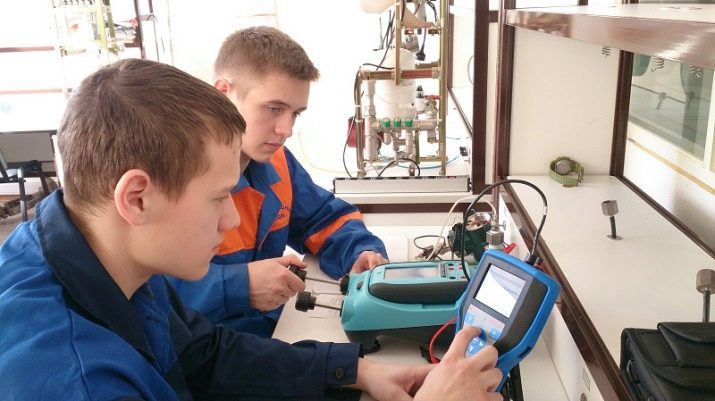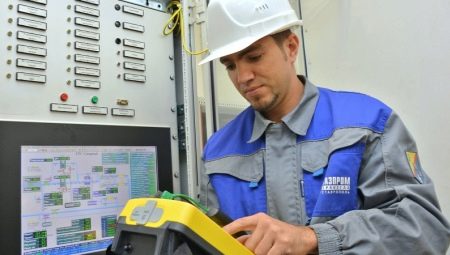Who is a locksmith, more or less all people know. However, it is equally important to know everything about the profession Instrumentation and fitter. This type of activity is little familiar to ordinary lay people, but deserves maximum attention.
What is this profession?
In various sources, you can read that the history of the profession of a locksmith is rooted in centuries past. Already in the XV-XVII centuries, there were separate specialists of such a plan. But the development of industry did not stop, and in the twentieth century, there appeared such a key specialization as a fitter of instrumentation and automation. This is not the employee who “walks around with a wrench and tightens it if necessary.” This is a much more complex and sophisticated specialization.
A fitter of instrumentation and automation (this is how the abbreviation of instrumentation and automation stands for) must come of age. To occupy such a position will require average level of professional training least. Admission to the activity is made after medical examination. Additionally, you need to master safety standards and requirements for the operation of electrical equipment. Have to go through every year certification. The contraindications for working as a control and automation technician are the same as for specialists in electrical installations with a voltage of 42 V. The industry celebration in Russia falls on December 22. The international holiday - more precisely, the day of the metrologist - was scheduled for May 20.
Instrumentation and automation fitter works with exceptionally “thin” mechanisms both in size and in sensitivity.He has to use instruments of various sizes.
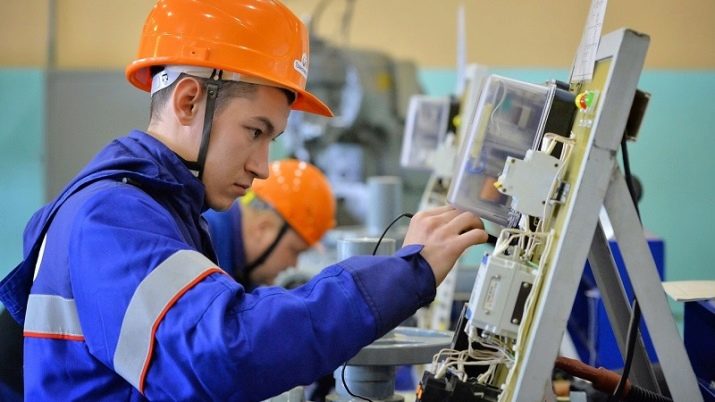
Job description and responsibilities
Appointment of instrumentation and automation fitter for an official position and its removal is made in a written order of the head of the organization. This specialist:
- repairs, regulates, adjusts and adjusts all kinds of equipment;
- mounts, tests, adjusts, calibrates automatic, heat-measuring and radio-electronic equipment;
- checks the operability of electrical apparatuses of all varieties, including reference devices;
- takes care of the health of automatic units, including complex electronic components;
- conducts arbitration measurements;
- Detects various problems and fixes them;
- determines the level of wear;
- corrects technological parameters of devices based on semiconductors and electronics, properties of integrated circuits;
- establishes and tests new equipment;
- carries out processing of readings of measuring equipment by mathematical methods (if necessary, using software packages);
- collects circuits.
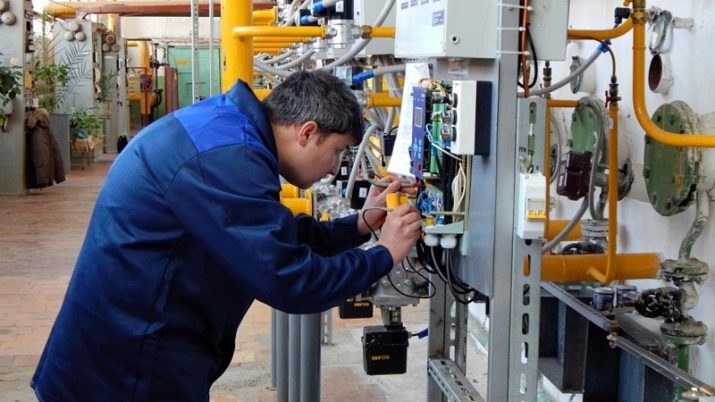
But this does not end the responsibilities of the instrument control engineer. This professional delivers turnkey serviced technical communications, with the preparation of the necessary documents. He works also with mechanical, pyrometric devices, recorders and other instruments. You will have to deal with the manipulation of parts according to the 11th and 12th qualifications and carry out proper fine-tuning.
Another functional mechanic of instrumentation and automation is:
- fitting parts;
- soldering with various solders;
- hardness determination using calibrated files;
- coloring of working devices;
- repair and adjustment of especially complex devices (under the control of engineers or especially experienced locksmiths of the highest category);
- check of serviceability and operability of all entrusted equipment;
- compliance with fire safety regulations;
- serviceability monitoring of interlocking and signaling systems, protective equipment, fences, grounding;
- continuous use of protective equipment required in a particular case;
- maintaining elementary order.
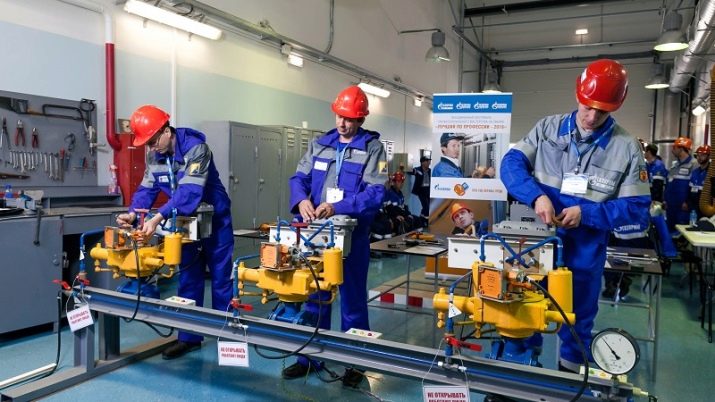
ETKS bits
The list of operations performed by instrumentation and automation fitter may vary depending on their category. Those who receive the second category can already process parts at the level of 12-14 qualifications. Also they will have to repair, regulate, test and pass:
- simple;
- working on the principles of electromagnetism and magnetoelectrics;
- optical-mechanical;
- heat measuring devices and apparatus.
A professional of this level should be able to to mount the connections according to simplified schemes, as well as to wind coil springs from cold wire, to find and eliminate malfunctions of simple equipment. Locks of instrumentation and automation of the second level perform protective lubrication of parts. They can repair moderately sophisticated appliances under the guidance of a more experienced locksmith. Examples of their work:
- average repair, adjustment of electrical engineering (primarily ammeters, galvanometers and manometers);
- processing of parts of scales of railway transport;
- repair of trade and auxiliary weights;
- preparation of transformer frames;
- gearing with futor;
- not too serious repair of magnetic contactors;
- assembly of finished sets of parts for technical pressure gauges;
- correction of the personnel counter of a mechanical camera.

Instrumentation and fitters can:
- to overhaul and adjust ammeters, electric meters, gearboxes and manometric equipment;
- repair industrial scales;
- set up and correct aneroid type barometers;
- to carry out current and urgent repairs of commodity, truck scales;
- pressure testing hydraulic sensors;
- cut through threads in blind parts;
- repair sensors based on the piezo-acoustic effect.
Rising a rank higher, it's easy to see advanced functionality. Such professionals can work with complex devices of various types, expertly adjust and bring their details (components). During locksmith manipulations with parts, the quality of work corresponds to 7-10 qualifications. 4 category locksmith gives him the right to set up and establish relay protection systems, telemechanical and automatic complex systems.
Also, the privilege of this specialist will be the study of complicated connecting circuits, the calculation of the absolute (but also relative) errors when testing devices.
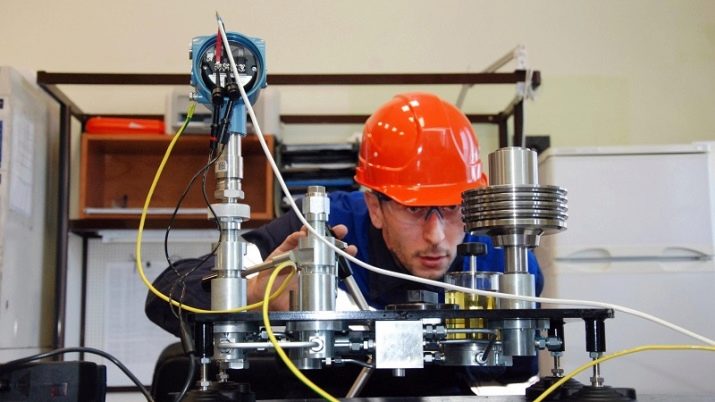
Instrumentation fitter 5 categories:
- makes equipment for laboratories;
- engages in the drawing of measuring scales, technical grids, makes complex sketches;
- recounts electrical appliances to other extreme measurement characteristics;
- checks compliance with the qualifications of various automatic regulators, automatic power supplies, adjusts as necessary;
- repairs and adjusts automation that controls pressure and temperature parameters;
- mounts and adjusts wagon, truck scales;
- repair goniometers;
- finishes optical parts;
- checks and repairs interferometers;
- repairs reference gauges;
- evaluates the performance of universal microscopes, eliminates their defects.
The highest demands are predictably placed on fitters 6th category. Such specialists may already work with radioactive devices, parts of radio stations, direction finding and radar systems. They need to possess not only metrological knowledge, but also information from telemechanics, heat engineering, radio engineering. Instrumentation and fitter of the 6th category performs the following tasks:
- adjustment of electronic equipment;
- adjustment of existing autoregulators and heat measurement systems;
- overhaul of automatic portion scales;
- any types of manipulations with model carriage weights;
- overhaul of gas analyzers, television meters, range finders;
- the most difficult repair work with mechanical movie cameras, cameras;
- installation of magnetic oxygenometers;
- repair of oscilloscopes, pyrometers, potentiometers, comparators.
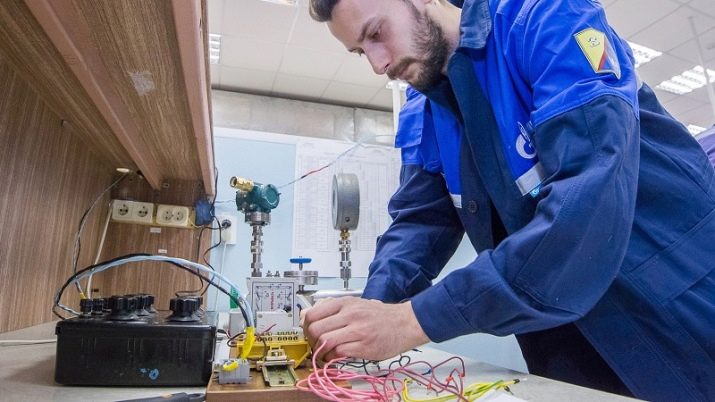
Employee Requirements
Education
The very name of the profession suggests that its representatives should be well aware of modern automation and be prepared to troubleshoot. Because the candidates are expected secondary vocational education at least. Education at an advanced college level is not welcomed. A specific training circle is determined by belonging to a particular industry. This, by the way, makes it very difficult even to compile typical job descriptions.
One way or another, the instrumentation and control fitter should skillfully apply (depending on the category):
- information on the device and principles of operation of serviced equipment;
- state standards;
- methods of thermal and mechanical processing of parts of mechanisms;
- electrical and thermomechanical circuits;
- the basic procedure for calculating instrument errors;
- procedure for calculating electrical resistances;
- fundamentals of telemechanics, radio control, programming of controllers, simple microcircuits.
Mandatory item in preparation for certification at any level will be mastery of intersectoral labor protection. These include, first of all, the norms for the use of electrical installations and the principles of industrial safety.
You will also have to master the basic rules of working with the tool.
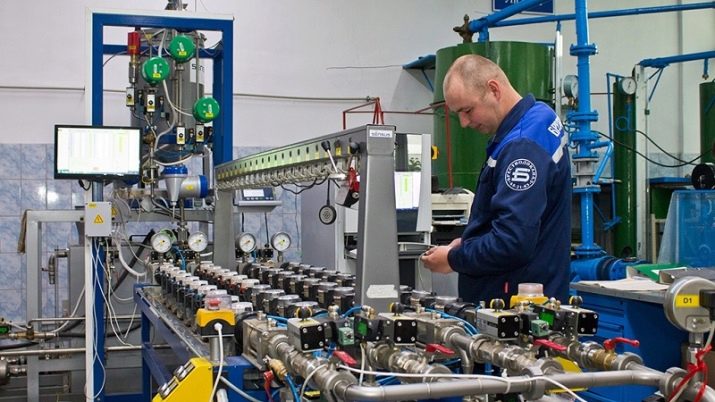
In all disciplines, the results of certification are reflected. in protocols and qualification certificates. Additionally, in each commercial and state structure, of course, they are certified for compliance with official requirements and technological standards.
It is still highly desirable to know:
- key parameters of conductors and insulators;
- resistance measurement methods;
- Qualities, information on technical roughness;
- oils and greases with the effect of suppressing corrosion;
- key properties of metals and non-metallic materials needed by industry;
- factors influencing distortions in the measurement process, causing inaccuracy of technological procedures;
- symbols of various details and their significant properties;
- tolerance and landing systems;
- kinematic schemes;
- features of the interaction of sequentially or shared devices and apparatuses.

Personal qualities
Of course, such an important role of instrumentation and automation technicians in industry requires them maximum responsibility. Moreover, they must very clearly fulfill even the most insignificant externally task. In addition to such qualities, it is extremely important:
- developed technical and spatial thinking;
- speed of decision making;
- ability to act clearly with a lack of information;
- rational distribution of attention;
- resistance to emotional influences;
- willingness to work alone, in large and small groups;
- ability to concentrate attention even with strong interference.
Job prospects
Instrumentation specialists are needed by all industrial enterprises. But most of all they are in demand in large firms that are constantly developing. The amount of salary is highly dependent on the specific region of employment and skill level.
Horizontal growth implies the successive development of qualification categories. Vertical - raising the general qualification bar, with becoming a site foreman or an engineer.
On average in Russia, locksmiths have an income of 20-50 thousand rubles. Having become an engineer, it will be possible to count on a salary of 30 to 80 thousand. The income of the instrumentation and automation engineer in the Trans-Baikal region (at individual ore facilities) may exceed 200 thousand rubles.
In the regions of the Far North when working on a rotational basis, you can apply for a salary in the region of 100-120 thousand. But it is important to understand that it’s not so easy to set up complex equipment in harsh climates.

Where to get training?
Admission to colleges and universities specialty "Instrumentation" requires a mandatory exam in history and the Russian language. You will also have to take a profile exam (physics or mathematics) for an "excellent" mark. Distance education in these specializations is not practiced. Training programs for instrumentation and automation fitters are open in the following educational institutions:
- College of Modern Technology (Moscow);
- College of Space Instrumentation (Moscow);
- College of Industry and Technology (St. Petersburg);
- Izhora College;
- a number of training centers.
In the regions of Russia, the same training is conducted by
- Cheboksary Electromechanical College;
- Petrochemical College (Kazan);
- Chelyabinsk College of Law;
- College of Industry and Economics (Omsk);
- Engineering College (Samara);
- Chemical Engineering College (Perm);
- Voronezh College of Welding and Industrial Technologies;
- College of Welding Technologies and Energy (Krasnoyarsk);
- Tyumen technical school of the construction industry and urban economy.
